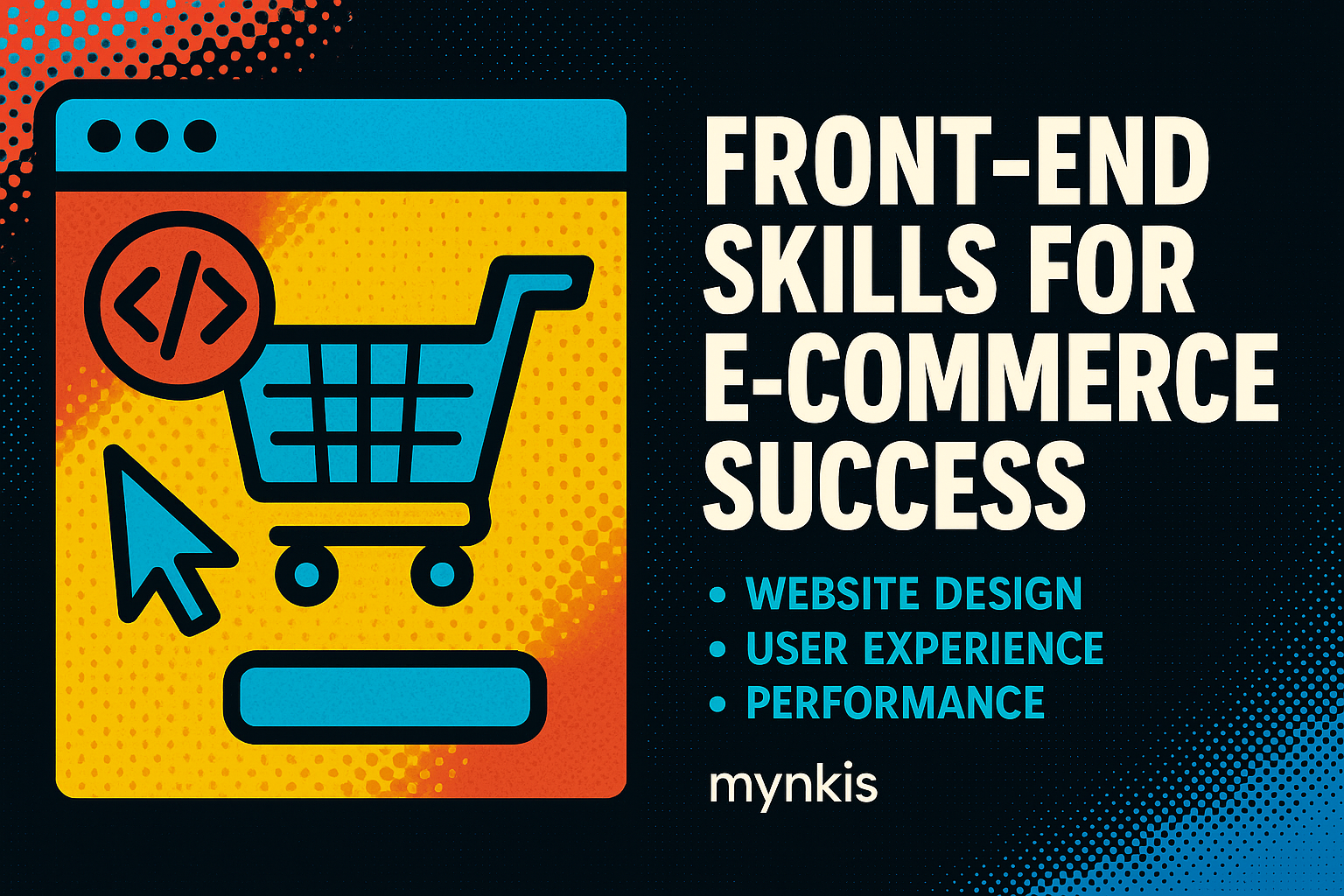Schedule a Demo
Front-end development is more than just making websites look good; it's about crafting an immersive, efficient, and enjoyable user experience, especially for e-commerce platforms. When it comes to creating an online store that not only looks attractive but also functions seamlessly, a set of core skills is non-negotiable. Let's dive into the competencies that front-end developers need to master to elevate an e-commerce project from good to exceptional.
HTML5 is the foundation of any website, and its importance cannot be overstated. I've often seen e-commerce sites struggle with slow load times and poor SEO due to inefficient use of HTML. By leveraging semantic tags, developers can improve both accessibility and search engine rankings. Additionally, integrating features like canvas and video enhances the user experience without requiring third-party plugins, keeping load times swift and the site's performance optimal.
CSS3 not only controls the design and layout of an e-commerce site but also plays a critical role in user experience. From responsive design to animations, a skilled front-end developer uses CSS3 to ensure the site looks fantastic on any device. They incorporate modern techniques like flexbox and grid layouts for creating dynamic, user-friendly interfaces that shoppers love navigating through.
JavaScript is the muscle of any interactive site, especially e-commerce platforms. My experience working with retailers has shown me that users expect instant feedback—be it while adding items to a cart or completing a purchase. Therefore, front-end developers must optimize JavaScript to prevent performance lag. Techniques like code splitting, lazy loading, and leveraging CDN services help maintain high performance standards, ensuring a smooth shopping experience.
UX design is integral to a successful e-commerce platform. It involves understanding customer behavior and optimizing the site for easy navigation and an intuitive shopping process. I've noticed that e-commerce sites that excel in UX tend to have higher conversion rates. Front-end developers must, therefore, work closely with UX designers to implement designs that are not only visually appealing but also functional and easy to use.
Ensuring that your e-commerce site is accessible to all users, including those with disabilities, is both ethical and practical. It extends your customer base and improves your site's SEO. From keyboard navigation to high-contrast modes, accessibility considerations should be part of the front-end developer's toolkit. They must be proficient in standards like WCAG to make e-commerce sites inclusive.
SEO is vital for e-commerce sites that want to thrive organically without relying solely on paid ads. Techniques such as using structured data for rich snippets, optimizing image alt tags, and fast-loading pages can significantly boost visibility. Front-end developers play a crucial role in implementing these practices by constructing a site architecture that search engines love.
A site that doesn't work flawlessly can be detrimental to business. Hence, the ability to test and debug is indispensable. Front-end developers should be adept in using tools like Chrome DevTools to identify issues, from layout discrepancies to JavaScript errors. Moreover, they need to ensure cross-browser and cross-device compatibility to provide a consistent shopping experience for all users.
Collaboration is key in the development world, and version control systems like Git are essential. They enable multiple developers to work on a project without stepping on each other's toes. For e-commerce, where regular updates and feature enhancements are common, a front-end developer must leverage version control to maintain code integrity and ease deployment of new site versions.
Many modern e-commerce platforms rely on various APIs to pull in content, manage payments, and handle other backend tasks. A front-end developer should be comfortable integrating and consuming these APIs. Effective API management can streamline the shopping experience, allowing for real-time updates on inventory, pricing, and more.
In the digital age, security cannot be an afterthought, especially in e-commerce where sensitive customer data is at stake. Front-end developers need to be knowledgeable about implementing HTTPS, preventing XSS attacks, and using CSP (Content Security Policy) to protect against vulnerabilities. Their role is crucial in building a secure online environment that customers trust.
The web development industry evolves rapidly, with new tools, frameworks, and best practices emerging all the time. Continuous learning is a non-negotiable aspect of being a proficient front-end developer. In my dealings with project managers, I've found that those who stay updated on the latest trends in technologies like React, Vue.js, or emerging standards such as Progressive Web Apps often lead their e-commerce projects to success.
The sum of these skills forms the basis of a front-end developer's toolkit essential for crafting an e-commerce experience that delights users and drives sales. It's about blending technical acumen with a user-centric approach to deliver not just a website, but a memorable shopping journey.
